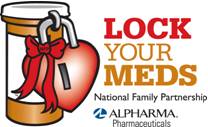The National Institute on Drug Abuse is holding the 3rd Annual National Drug Facts Week from January 28 - February 3, 2013. Taking part in National Drug Facts Week means you have the opportunity to help shatter the myths about drug use for teens.
Every
day, teens are bombarded with conflicting messages that may leave them feeling
confused and unsure of who to ask for information about drug use. With 7.4% of
teens reporting abuse of prescription drugs in the past year and 22.6% of 12th
graders reporting using marijuana in the past month, it’s crucial to reach
teens with the facts.
As
the mother of two teens, these numbers frighten me. As a social worker
addressing the prevention of abuse of all substances, these numbers frighten
me. As a neighbor, community activist and citizen, these numbers frighten me.
I
think the best resource we have is each other. It is incumbent on us to share
the facts as we know them and to encourage others to understand why abusing and misusing
alcohol, illicit drugs, and prescription drugs is so dangerous. Teens are known
for their naive inability to think beyond the now. We know this; we were all
teens once, too. So, how do we get them to think years and decades ahead?
For
me, the scare tactics worked. That whole, "This is your brain on
drugs". But, also I knew my parents would be disappointed in me and that
would have crushed me. I knew this because they talked with me,
especially my Dad. He, too, was a social worker and understood how to
approach me differently than my two sisters. So now, I am adapting what
worked for me when I talk with my sons. My husband, who is also a social
worker, obviously had different experiences and approaches our boys as a
Dad and as a man. We have to work together to make sure our messages
are consistent and not contradictory. The last thing we want is to
confuse them further or have them think we are not on the same page.
Think
about what would have helped you more when you were a teen. Do you talk
with your own children or your friends? How do they respond? Does your
family and community take proactive and positive stances to reduce drug
issues? What approach worked for you? What is effective in your
community?








